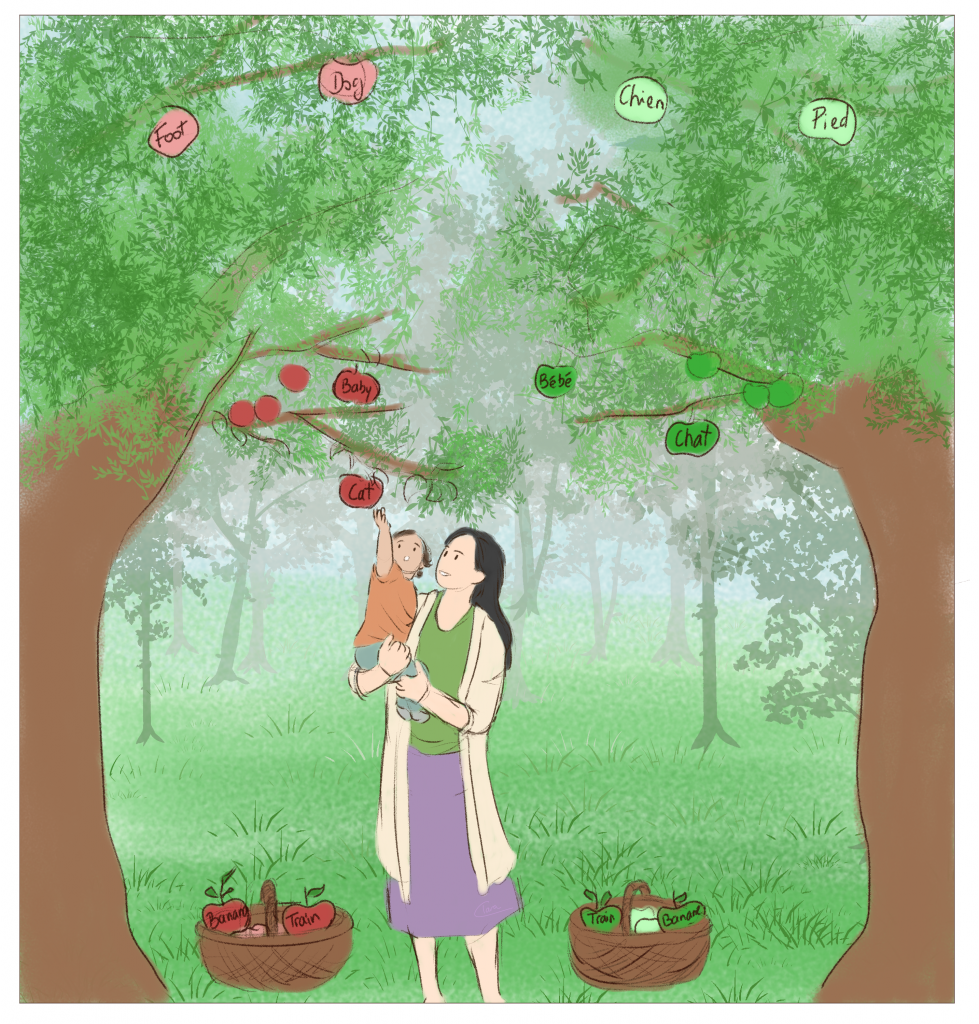Does language overlap help a bilingual child learn two languages?

Some languages may sound quite similar to an adult. A native speaker of Italian for example may be able to make out some words in Spanish. Other languages may sound very different to an adult. A native Italian speaker may be completely lost as to words in Mandarin.
Words can sound similar and have the same meaning in each of a bilingual’s languages. These are called: cognates. A baby learning Japanese and French will learn that a banana is called ‘banane’ in French and ‘banana’ in Japanese. Research has shown that bilingual babies learn cognates quicker than non-cognates. That makes sense! Similar word, same meaning.
Most words a bilingual child needs to learn will have the same meaning across her languages. These words are called: translation equivalents. For example, in French a dog is called ‘chien’ and in Japanese it is called ‘inu’.
Some words, of course, may have no translation equivalent. They may be categorized differently, like in English there is one word for ‘brother’, but in Japanese there are two, depending on whether the brother is a younger brother ‘ototo’ (younger brother) or an older brother ‘onisan’. Or, there may be no similar word altogether, like the English word ‘slush’ that has no equivalent in French. In French, it would be translated with a description: ‘neige fondue’ (melted snow).
Bilingual children need to navigate all these different kinds of correspondences between words in each language, but as we will see next time, they have a trick up their sleeve to make the process easier!
The scientific sources for our comic:
